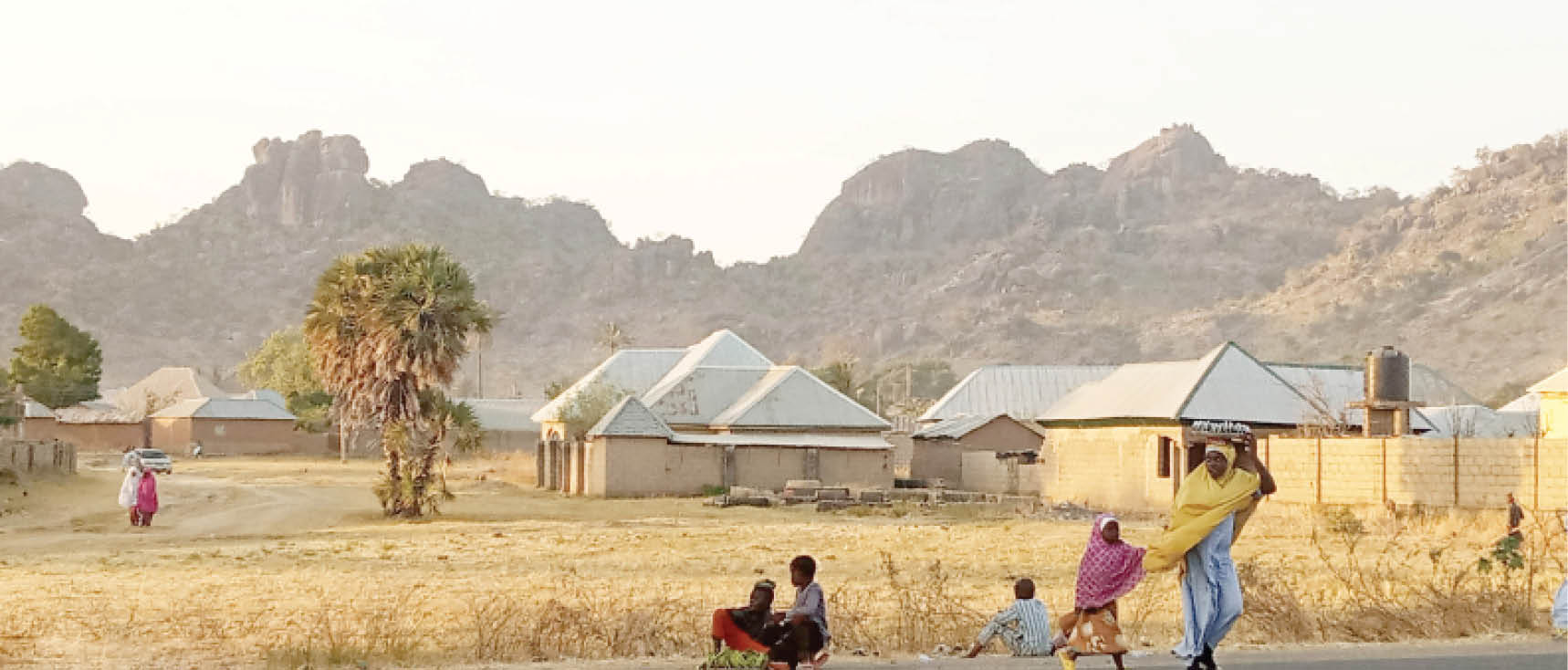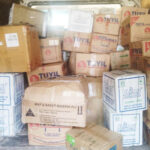Dass town in Bauchi is known for its many rocks and fertile land that transforms the lives of farmers, turning the historic town into a rice hub, thus improving the socioeconomic condition of its people.
Alhaji Adamu Danladi Dass, a full-time farmer, said people from far and wide who know Dass well are aware of its reputation as a rice farming local government area, so much that some varieties of rice bear its name. He pointed out that the area has very good soil for rice farming. “Even if it costs higher than rice cultivated in other places, people rush to buy it,” he said, adding that there is vast land in the town for growing rice.
Danladi said that very soon the town’s weekly market will be flooded with rice because it makes up eighty per cent of what comes to the market. “Our challenge is the high cost of farm implements as well as labour,” he said. “For us to tackle this, we need soft loans from government to enable us meet up with high demand.”

The farmers noted that, although they have heard about federal government giving grants to rice farmers elsewhere, the people of Dass were yet to benefit from it as far as he knows. Danladi pointed out that many people form groups and cooperatives for the purpose of accessing loans even when they are not farmers.
“In the past, farmers don’t get loans without involving agric extension workers who are allocated in wards and communities to monitor and clarify who qualifies and who does not. They categorise farmers into large scale, small scale and peasant farmers,” he said.
Danladi explained that the loans are not given in time and the real farmers are usually not identified.
He continued: “There was a time they tried to give loans to associations to start dry season farming, but there was a timing problem and assessment delays. The processes and other arrangements discouraged many farmers.
“Some farmers had even rented farmlands and tried to sink boreholes to identify whether there was enough water. Before they started dry season had gone and the owners of the farm wanted their land back.
“Another factor is the lateness and also the amount given is meagre. I couldn’t accept it. Many people who received the loan couldn’t produce much not to talk of refunding the loan.”
Danladi said there are many rice farmers who produce up to 500 bags or more, especially in the past two years. In 2020 farmers sold their rice and were able to go on Hajj pilgrimage, while others bought tractors or built houses worth millions of naira.
“For example, this year 100 bags will give over N2 million because we used a big bag which contains 150kg. Many young men and women became millionaires as a result of rice farming in Dass not to talk of the old farmers. If you are in a house with a young man engaged in rice farming, you will think he is a a big business owner or senior government official.
“Some of these rice farmers are primary school teachers but they plant and harvest between 200 to 300 bags and, apart from the rice, some planted crops like maize, groundnuts, among other crops. I made a small pyramid of rice this year in my sitting room and now use it as my second store because for one to continue in this business, one needs to be prepared.
“When I harvest my rice, I set aside some portion for the coming season because of the challenges of fertilizer. I sell some to buy fertilizer and herbicides and keep what would help me a lot at the beginning of the season, like labour. Last year I harvested over 400 bags and I was able to buy a new J-5 bus from rice apart from settling my family needs.”
Danladi appealed to the government to use extension workers who, he said, are not utilised despite being on government’s payroll. They should also identify genuine farmers and evolve strategies before the agricultural loans are accessed. “Such people should be recommended by the extension workers who visit farmers at their respective farms,” he said. “The loan should also be based on the portion of land available to farmers for cultivation.
“Let the loan be for equipment, herbicides and not cash, because many people might spend the money. Government should provide market modalities for these commodities”
Another rice farmer, a 56-year-old retired teacher, Mrs Amaza Dare, told Daily Trust on Sunday that she has achieved many things from rice farming, especially giving her children sound education with one of them studying abroad from the proceeds of rice farming.

“I have been a rice farmer for many years. If I had gotten the needed support, I would have become more successful than I am,” she said. “If government supports rice farmers in Dass with tractors, fertilizer at the appropriate time, herbicides and other necessary equipment, the town will become a rice hub not only in Bauchi but the country in general because there are determined farmers who are willing to produce varieties of quality rice that can compete with any in the country.”
She explained that farmers face the challenge of hiring tractors at the beginning of raining season, as well as the high cost of fertilizer, especially for those who plant in large quantity.
Dare further adds that because of the fortune derived from rice farming, a good number of youths have embraced it. “My younger child recently asked me the farmland I will allocate to him. I have more than 20 bags of rice. In Dass, hundreds of young men and women have engaged in rice production. Right now, we have youth who produce between 200 to 500 bags of rice. If we get support loans from the government, the story will be different and only God knows the kind of wealth we would generate.”
She pointed out that as a result of this development, rice farmers are making frantic efforts to boost rice production. “Some bought modern harvesting machines and another that cleans the rice and removes sand.
“The only problem is that when these machines develop technical faults, there is no one to fix them and they are abandoned.
“We are calling on all stakeholders to assist our youth in getting to know the technical know-how of modern agricultural machines as our youth have the zeal and commitment to farm,” she said.
On his part, Samaila Babaji Bagudu, told Daily Trust on Sunday that because of the boom in rice production, he hopes to go on Hajj in 2021.
“I harvested over 130 bags of rice. The profit is encouraging despite the high cost of fertilizer and equipment. I spent about N600,000, and after removing charity (Zakkat), I got a profit of over N1 million,” Bagudu said. Like the others, he too stressed the lack of government support and encouragement.
However, Abdulrashid Saidu, 25, is not discouraged. He harvested 50 bags of rice in 2020 and talks glowingly of how his friends have, from their profits, bought brand new motorcycles, while others are planning to get married.
But Saidu has a different plan. He intends to build a good house. “My 50 bags are still in the store. I want to plan for the next coming season with a view to boost my rice production,” he said.

 Join Daily Trust WhatsApp Community For Quick Access To News and Happenings Around You.
Join Daily Trust WhatsApp Community For Quick Access To News and Happenings Around You.


